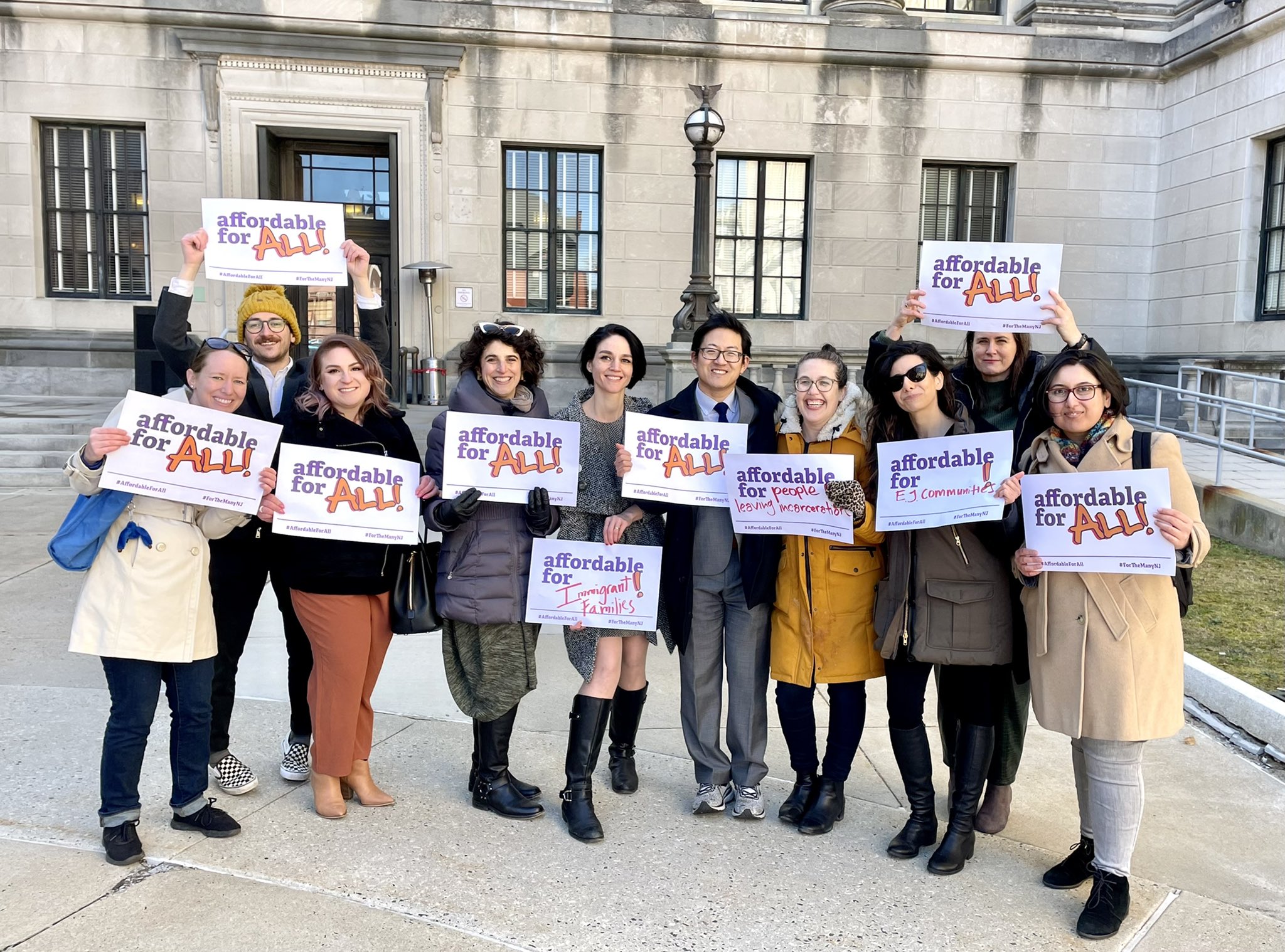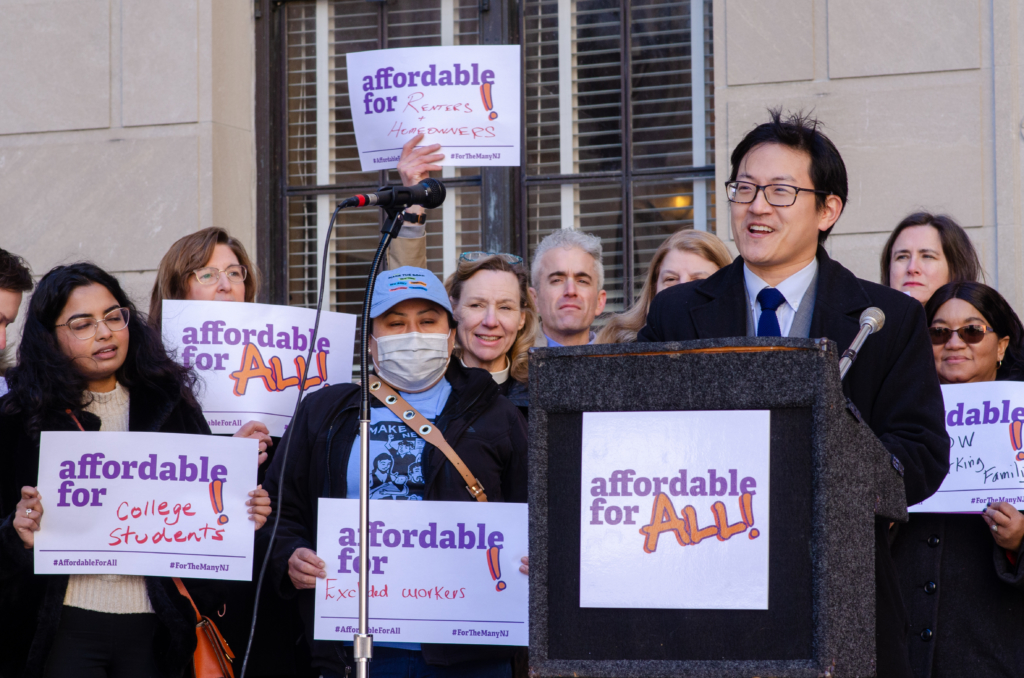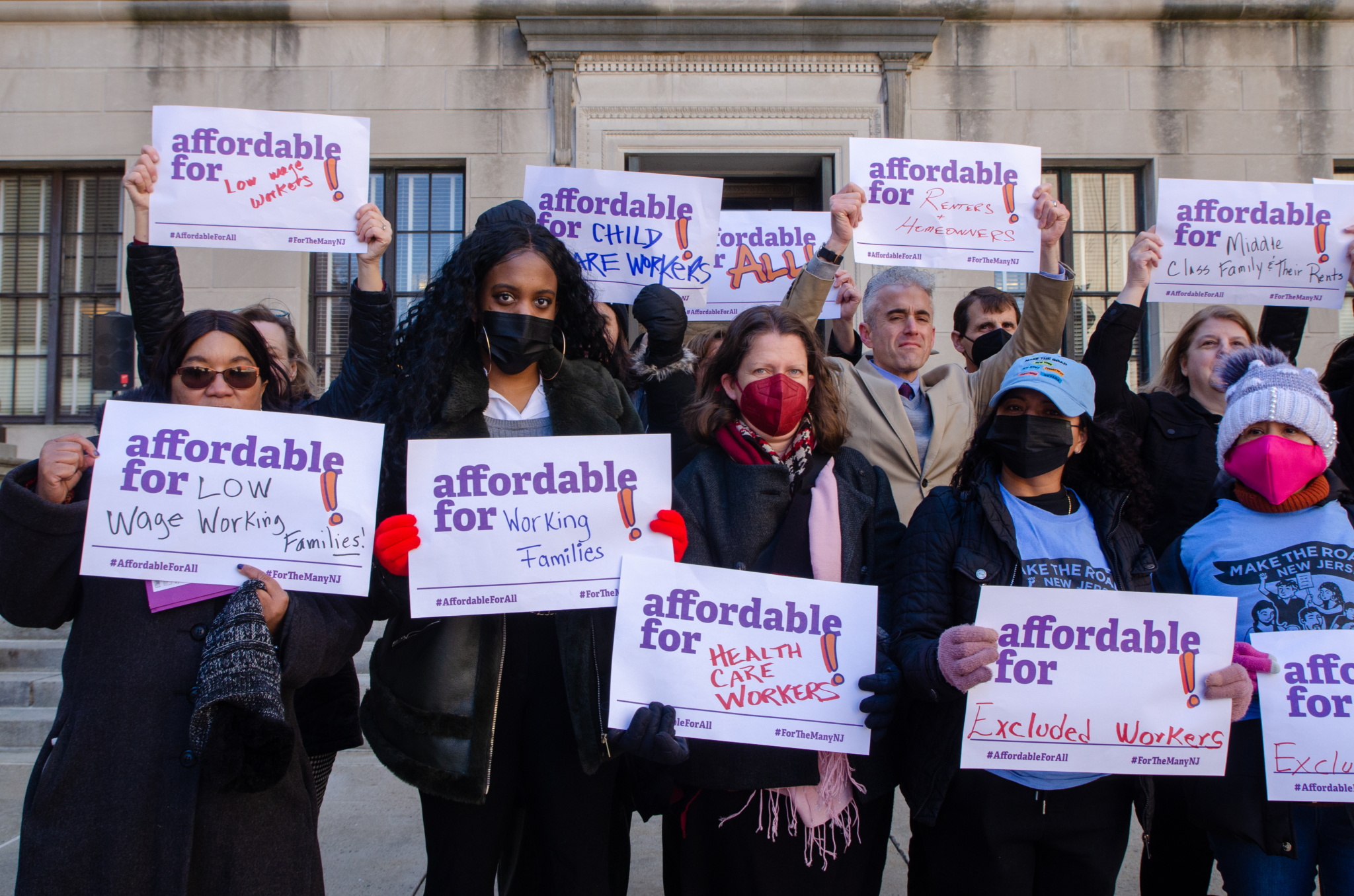Friday Facts and Figures is a weekly newsletter with data points, analysis, and commentary on the biggest policy debates in New Jersey and beyond.
Sign up here.
Vaccine Doses: 14,380,042
Fully Vaccinated People: 6,811,830
[New Jersey Department of Health / COVID-19 Dashboard]
Affordable for Who?
Earlier this week, the Legislature held its first public hearing on Governor Murphy’s budget proposal where advocates and direct service providers called on lawmakers to provide more funding for critical public services, while business lobbyists asked for more tax cuts. With everyone talking about affordability, NJPP’s Peter Chen urged lawmakers to ask, “Affordable for Who?” when weighing different proposals aimed at making the state more affordable. “With an unprecedented budget surplus, we have the tools to ease this pain with direct cash relief for families who need it most,” said Peter. [NJ Monitor / Sophie Nieto-Munoz]
12
Happy birthday to the Affordable Care Act! The landmark health care law was enacted 12 years ago this week, and millions more people have comprehensive health coverage because of it. But the success of the ACA varies across states depending on which ones expanded Medicaid and took steps to increase access to affordable care. In New Jersey, lawmakers invested in subsidies and assistance to keep costs down and, as a result, nine in ten enrollees qualify for financial help, with a majority of those receiving assistance paying $10 or less per month for their insurance. [NorthJersey.com / Governor Murphy and Commissioner Marlene Caride]
100,000
The New Jersey Cannabis Regulatory Commission announced earlier this week that the state’s existing medical marijuana dispensaries will no longer be permitted to sell recreational weed starting next month. Proponents of cannabis legalization are praising the decision, however, as the state is short approximately 100,000 pounds of marijuana to meet the demand of medical patients and recreational consumers. Chris Goldstein of NORML said the delay shows the commission plans to “stand up for consumers, small businesses, and medical marijuana patients.” [NJ Monitor / Sophie Nieto-Munoz]
25 Percent
Black residents are now more likely to die of overdoses than white residents, according to new data released by the State Police. Representing 12 percent of New Jersey’s population, Black residents accounted for 25 percent of overdose deaths in 2021. This serves as proof that preventing overdose deaths is a racial justice issue and that the state should do all it can to expand harm reduction services proven to save lives. [NJ.com / Riley Yates]
90 Percent
Through February, New Jersey has recovered 90 percent of jobs lost during the height of the pandemic, according to new jobs data from the state Department of Labor. After adding nearly 26,000 jobs in February — the strongest jobs report since last July — the state’s unemployment rate has dropped to 4.6 percent. Not all sectors are recovering jobs at the same rate, however, with leisure and hospitality jobs still 4.5 percent below their pre-pandemic peak. [Courier Post / Michael Diamond]
ICYMI
NJPP’s Peter Chen joined Chat Box with David Cruz to discuss Governor Murphy’s budget proposal, what “affordability” means, and a new Rutgers-Eagleton poll on whether New Jersey is on the right or wrong track. Peter’s panel starts around the 12:10 mark. [NJ Spotlight News / David Cruz]
Pets of NJPP
Meet Seamus Patton! Seamus was adopted from Joyrides Rescue in 2021 and is the calmest 13 lb. Chihuahua-mix you’ll ever meet. Seamus loves to make appearances at many Jersey City community meetings and lounge around at Lafayette Park. He hates peanut butter, going to New York City, and anti-taxers. His mom Dana is part of the Jersey City Together Education Team. Woof!

Have a fact or figure for us? Tweet it to @NJPolicy.








